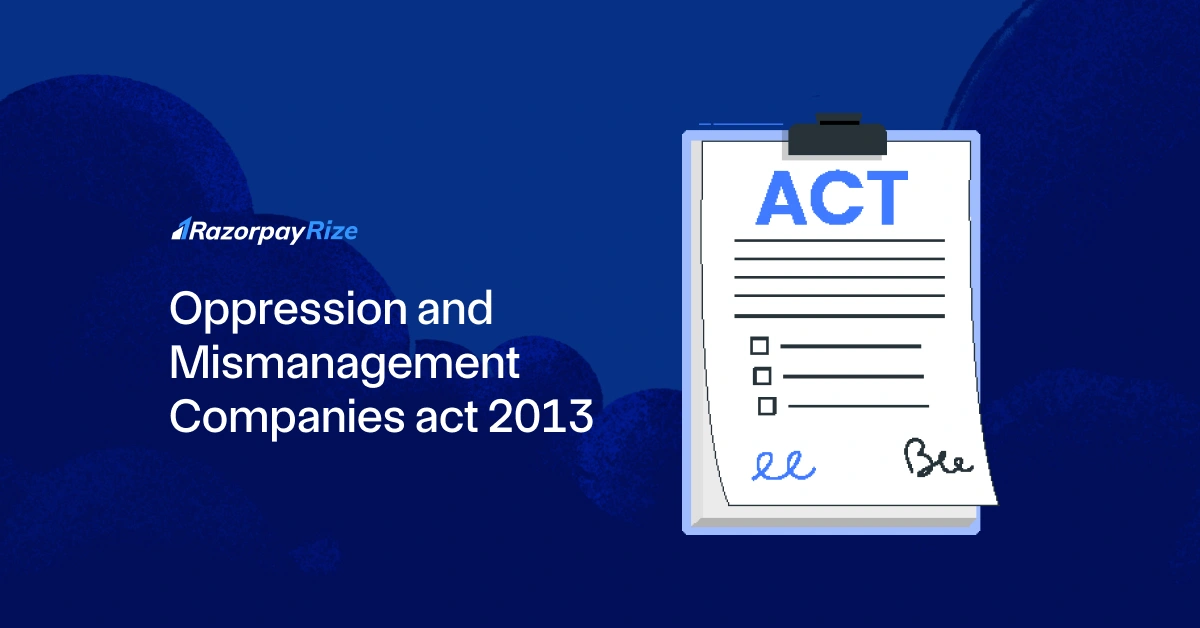When a company stops operating or fails to comply with statutory requirements, it risks being removed from the official records maintained by the Registrar of Companies (ROC). This process is known as strike off, and it marks the formal end of a company’s existence.
In this blog, we will explain the meaning of strike off, its legal framework, the reasons it happens, and how companies can voluntarily or involuntarily undergo this process. We’ll also cover the required documents, procedures, and implications for businesses.
Table of Contents
What is the meaning of “Strike-Off Company”?
A strike-off refers to the process of removing a company’s name from the ROC registry, leading to its legal dissolution. Once struck off, the company ceases all operations and loses its status as a corporate entity. If any assets remain, they are transferred to the government to clear outstanding liabilities. After debts are settled, any residual proceeds may be distributed among shareholders.
It’s important to note that a struck-off company cannot be restored to its previous status. However, a new company can be incorporated under the same name provided it complies with all legal requirements.
Company Status: Strike-Off
When a company’s status is shown as “strike-off”, it means that the ROC has officially removed it from the register of companies. This action results in:
- Immediate cessation of all business activities.
- Transfer of assets to the government to settle any unpaid dues.
- Legal dissolution of the entity, meaning it can no longer enter into contracts or pursue business activities.
A company that is struck off loses its identity and cannot function unless it is re-registered under special legal provisions.
Act Dealing with the Strike-Off of a Company
The process of striking off a company is governed by the Companies Act, 2013, specifically Sections 248 to 252, along with the Companies (Removal of Names of Companies from the Register of Companies) Rules, 2016.
Strike off can occur in two ways:
- Voluntary Strike-Off – Initiated by the company’s directors when it no longer operates.
- Registrar-Initiated Strike-Off – Initiated by the ROC when the company is inactive, non-compliant, or fails to file mandatory returns and reports.
Reasons for Company Strike-Off
Companies may be struck off by the ROC for several reasons, including:
- Prolonged Inactivity: The company has not conducted any business or operations for a significant period.
- Non-Compliance: Failure to file annual returns, financial statements, or pay regulatory fees.
- Fraudulent or Illegal Activities: Engaging in unlawful practices that violate corporate regulations.
- No Assets or Liabilities: The business has ceased operations and holds no significant assets or obligations.
- Non-Communication: Ignoring notices sent by the ROC or not responding to compliance queries.
Types of Company Strike Offs
There are two primary types of strike-offs recognised in India:
- Voluntary Strike Off
The company’s directors apply for a strike off when they decide to wind up operations. It requires clearing all dues and obtaining approval from shareholders and creditors. - Registrar-Initiated Strike Off
The ROC initiates the process when the company fails to meet statutory requirements, such as not filing returns for consecutive years or not maintaining registered offices.
Both types of strike-offs lead to the dissolution of the company, but the processes and conditions differ. Voluntary strike-off is usually smoother, while ROC-initiated strike-off may involve penalties and investigations.
Documents/Details Required for Voluntary Strike-Off
To apply for voluntary strike off, companies must submit several documents and details, including:
- Shareholder Consent( Approval from at least 75% of shareholders)
- No Objection Certificate (NOC) from Creditors
- Past Financial Filings( Copies of AOC-4 (annual financial statements), MGT-7 (annual returns), and income tax returns (ITR))
- Director Identity and Residential Proof
- Memorandum and Articles of Association (MOA/AOA)
- Litigation Details
- Bank Closure Letter Affidavits
Procedure for Submitting a Voluntary Strike-off Application
The step-by-step process for voluntary strike off includes:
- Board Meeting: Conduct a board meeting to pass a resolution to initiate strike off.
- Clear Liabilities: Settle all debts, loans, and statutory obligations.
- Shareholder Consent: Obtain at least 75% shareholder approval through a special resolution.
- File Form MGT-14: Submit the special resolution to the ROC within 30 days of passing it.
- Submit Form STK-2: Provide all required documents, including financial records and NOCs, to the ROC for final approval.
Once approved, the company’s name is removed from the register and officially dissolved.
Frequently Asked Questions (FAQs)
Private Limited Company
(Pvt. Ltd.)
- Service-based businesses
- Businesses looking to issue shares
- Businesses seeking investment through equity-based funding
Limited Liability Partnership
(LLP)
- Professional services
- Firms seeking any capital contribution from Partners
- Firms sharing resources with limited liability
One Person Company
(OPC)
- Freelancers, Small-scale businesses
- Businesses looking for minimal compliance
- Businesses looking for single-ownership
Private Limited Company
(Pvt. Ltd.)
- Service-based businesses
- Businesses looking to issue shares
- Businesses seeking investment through equity-based funding
One Person Company
(OPC)
- Freelancers, Small-scale businesses
- Businesses looking for minimal compliance
- Businesses looking for single-ownership
Private Limited Company
(Pvt. Ltd.)
- Service-based businesses
- Businesses looking to issue shares
- Businesses seeking investment through equity-based funding
Limited Liability Partnership
(LLP)
- Professional services
- Firms seeking any capital contribution from Partners
- Firms sharing resources with limited liability
Frequently Asked Questions
How to check the company’s strike-off date?
You can check the strike-off date of a company by accessing the Ministry of Corporate Affairs (MCA) portal:
- Visit the MCA website.
- Go to the “MCA Services” section and select “View Company or LLP Master Data.”
- Enter the CIN (Corporate Identification Number) or company name.
- Check the company’s status- if it is “Strike- Off,” the details page will mention the date of removal from the register.
- Additionally, you can view official gazette notifications where strike-off dates are published.
What are the advantages of a company strike-off?
Strike off offers several benefits for both the company and regulatory authorities:
- Legal Closure: It formally ends the company’s existence, protecting directors and shareholders from future liabilities.
- Debt Resolution: Remaining assets are transferred to the government to settle outstanding debts.
- Compliance Maintenance: Helps in maintaining a clean registry by removing inactive or non-compliant entities.
- Cost Savings: Eliminates ongoing compliance costs like annual filings, audits, and penalties.
- No Operational Risks: Prevents dormant companies from being misused for fraudulent activities.
Is a company strike-off necessary to maintain ethical business standards?
Yes, strike off plays an important role in maintaining ethical and transparent business practices. It ensures that:
- Defunct or inactive companies are removed from public records.
- Fraudulent or shell entities cannot misuse the corporate structure.
Can a struck-off company be revived?
A struck-off company can be revived, but only through specific legal procedures:
- An application can be filed with the National Company Law Tribunal (NCLT) or the appropriate court seeking restoration.
- The company must prove that it was struck off without due cause or that it is solvent and able to meet liabilities.
- All pending filings, fees, and penalties must be cleared before restoration.
- Courts may allow revival in cases where business continuity is justified.
However, revival is not guaranteed and depends on the facts of the case and the decision of the tribunal or court.
Is the strike-off process different across different states in India?
No, the strike-off process is governed by central laws, specifically the Companies Act, 2013 and its rules, and is therefore uniform across India. The Registrar of Companies (ROC) offices in each state follow the same procedures laid out by the Ministry of Corporate Affairs (MCA).
















